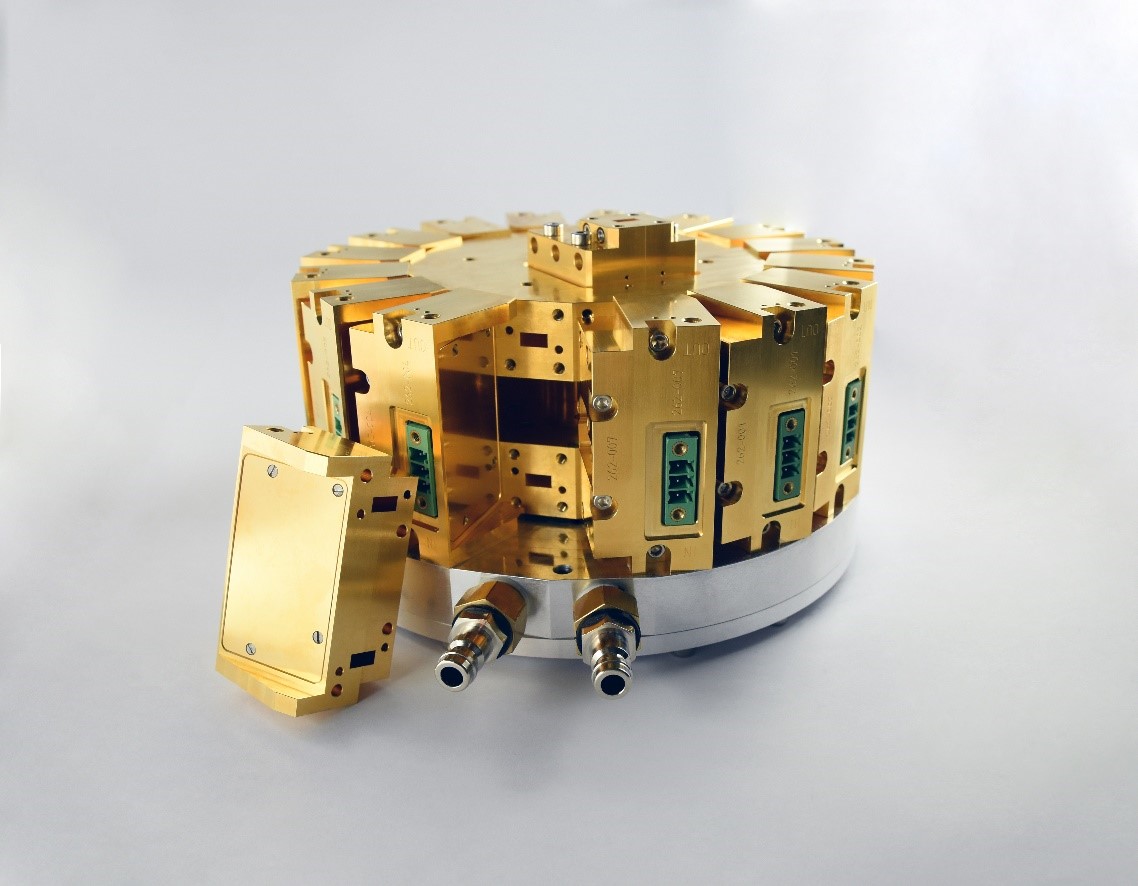
GaN solid-state power amplifier in ka band (26.5 to 40 GHz)

As higher and higher frequencies are used in next-generation communication systems, amplifiers that can deliver high power in these applications are crucial components, and in the mm-wave frequency range, they are usually realized with vacuum tubes.
Solid-State Power Amplifiers (SSPA)
However, solid-state power amplifiers (SSPA) are the better alternative due to their inherent advantages. Gallium nitride (GaN) power transistors and integrated circuits enable amplifiers with simultaneously high bandwidth, output power, and efficiency. This enables achieving the best high-frequency data while keeping operating costs and energy consumption low.
The Ka band (26.5 to 40 GHz) enables a higher bandwidth and is therefore particularly suitable for satellite communication applications.
The 16-way SSPA developed by Fraunhofer IAF contains 16 broadband GaN chips and a broadband and low-loss power combiner. The system thus offers considerable advantages in terms of efficiency and bandwidth. It delivers a peak output power of 127 W and almost 100 W over a large part of the Ka-band, thus significantly advancing the state of the art.
Research paper: https://ieeexplore.ieee.org/document/8700951
Participating FMD member institutes: Fraunhofer IAF
ALL2GaN – Affordable smart GaN IC solutions for greener applications @ Fraunhofer IAF
“ALL2GaN” aims to surpass the global state of the art in GaN-based circuits. To this end, researchers in the joint project are developing reliable low-voltage and high-voltage GaN power and high-frequency electronics as well as innovative integration technology, which will be demonstrated in a number of different use cases. The long-term goal is to improve competitiveness within the European Union to reach the forefront of industrial use of GaN-based technologies.
ESAKuKaLNA – Low-noise amplifiers in the Ku- and Ka-bands for satellite applications @ Fraunhofer IAF
With the advent of low noise gallium nitride (GaN) technology, robust LNA MMICs can be designed which may not require a limiter at the input, or require a less demanding limiter, hence improving the noise figure of the receive front-end. Recent studies have demonstrated that GaN combines high input signal power handling capabilities, while achieving state-of-the-art low noise performance which makes this technology an excellent choice for robust LNA development.
 Fraunhofer Group for Microelectronics in cooperation with the Leibniz institutes IHP and FBH
Fraunhofer Group for Microelectronics in cooperation with the Leibniz institutes IHP and FBH